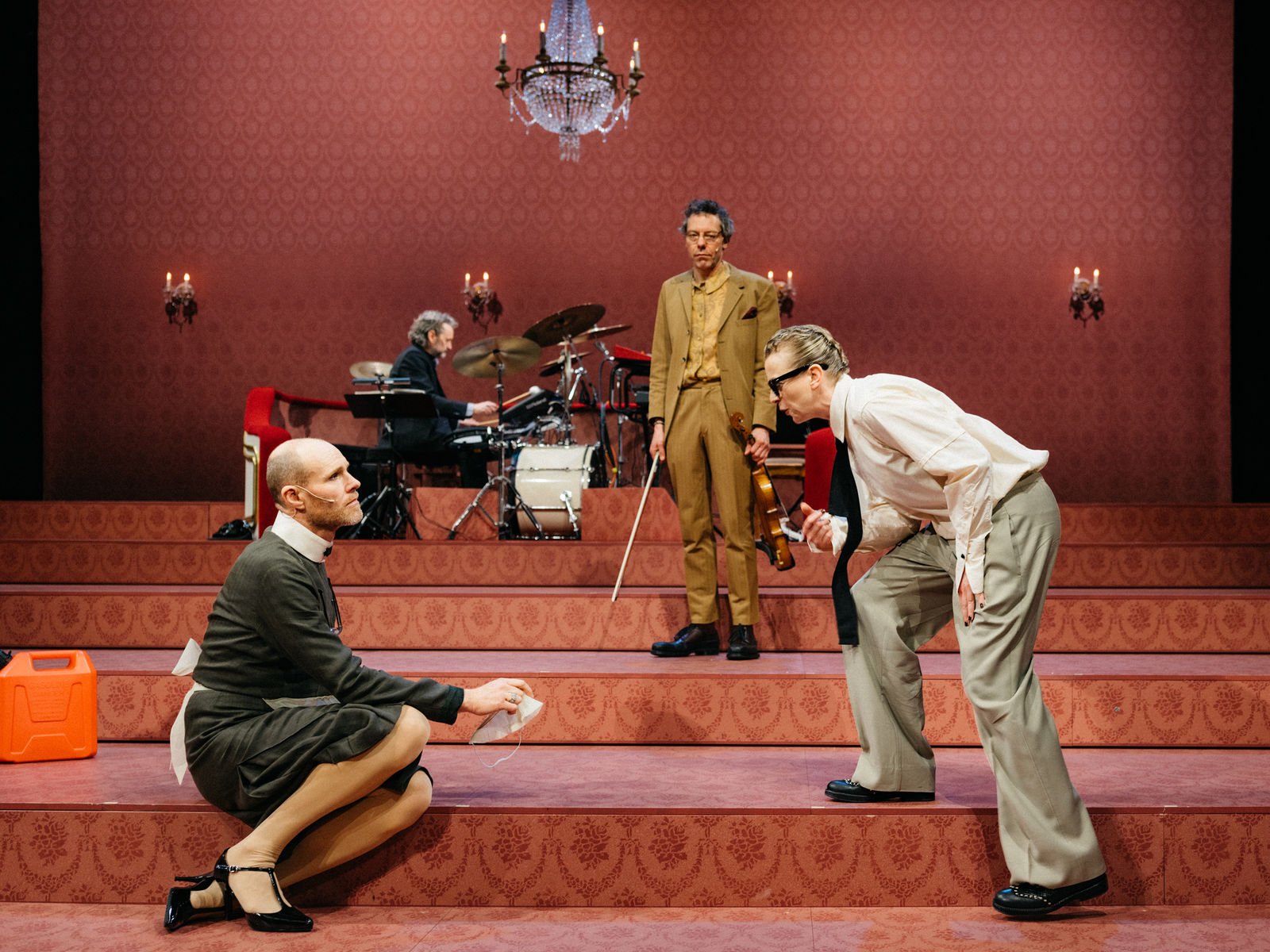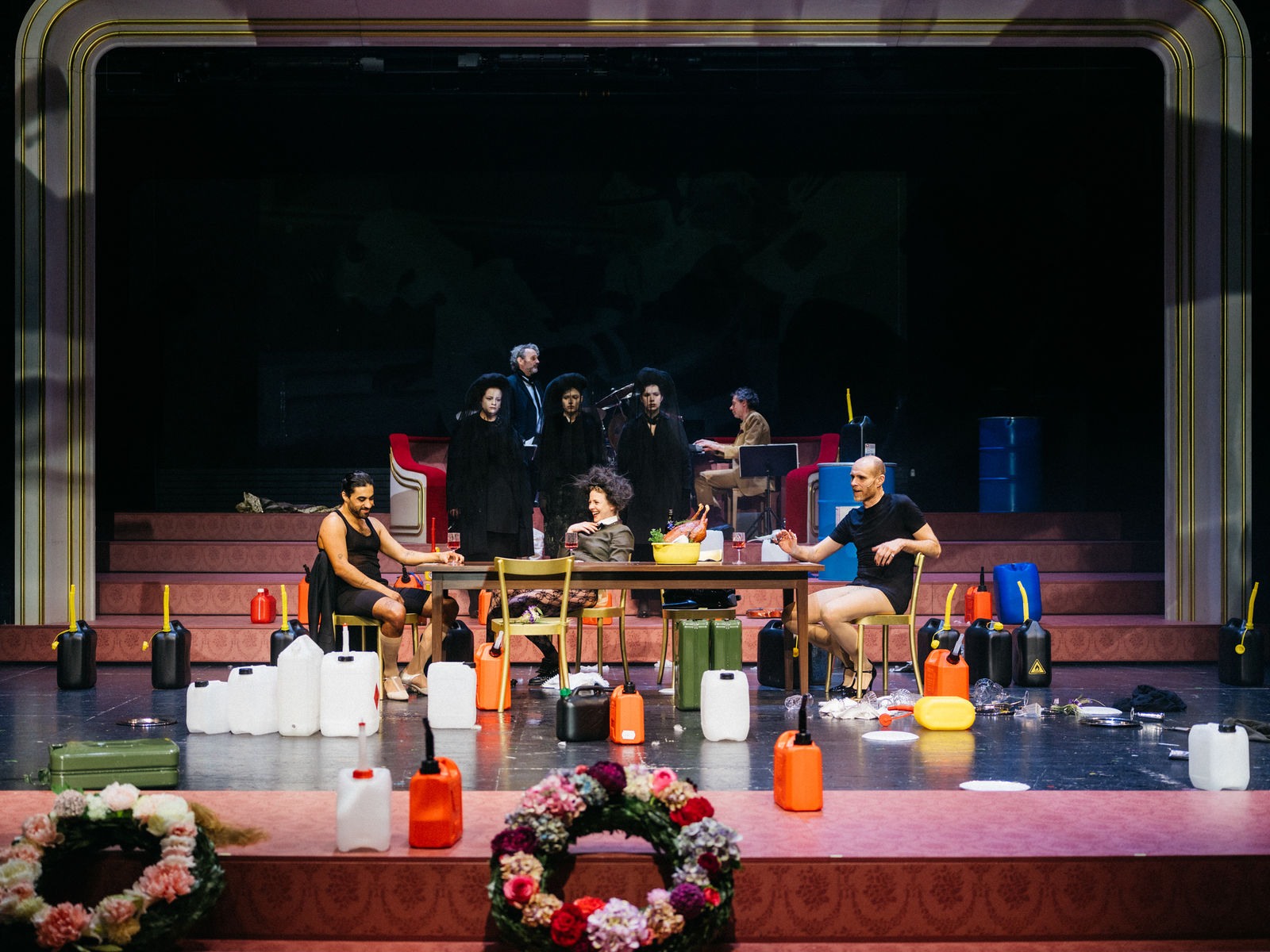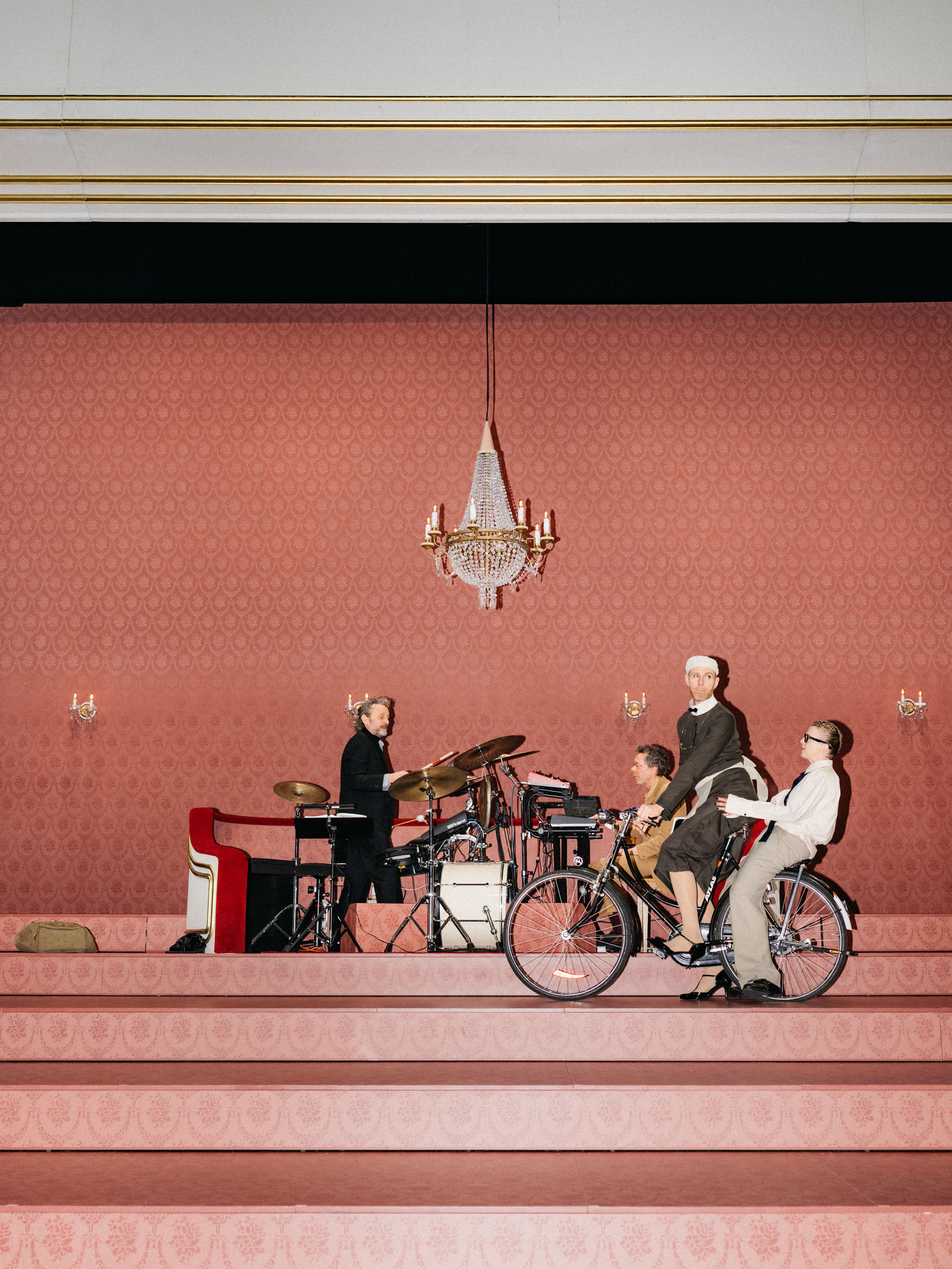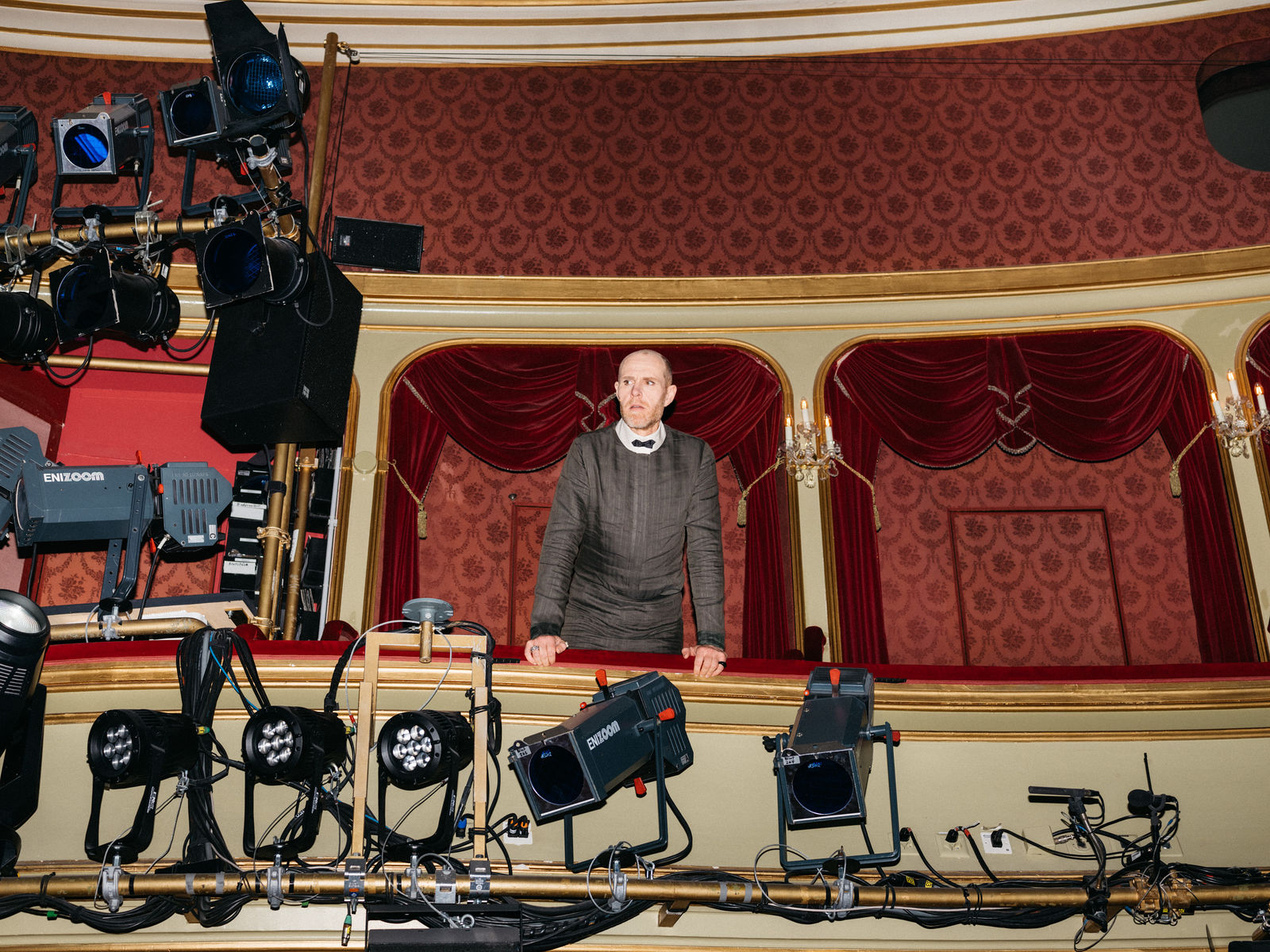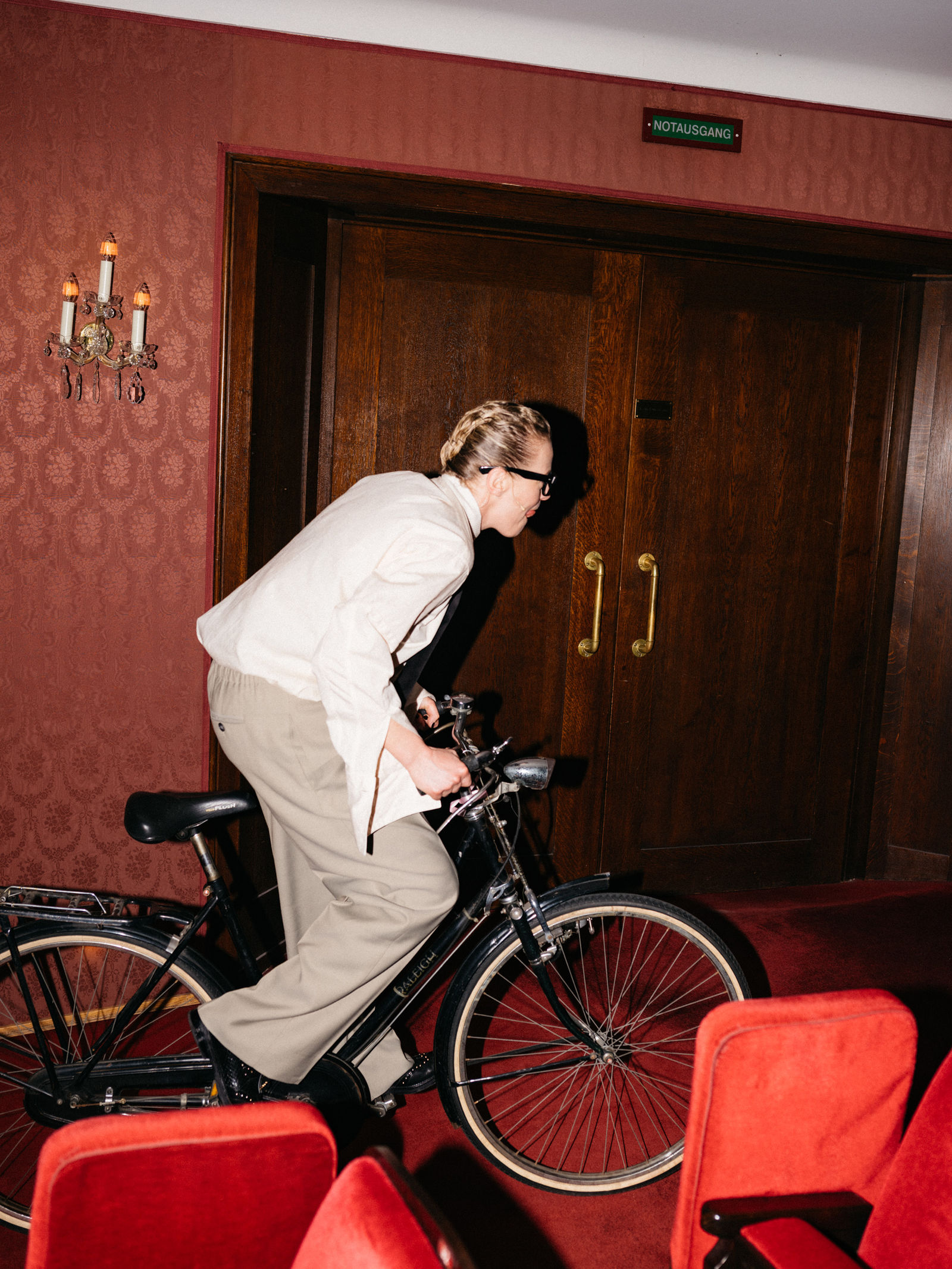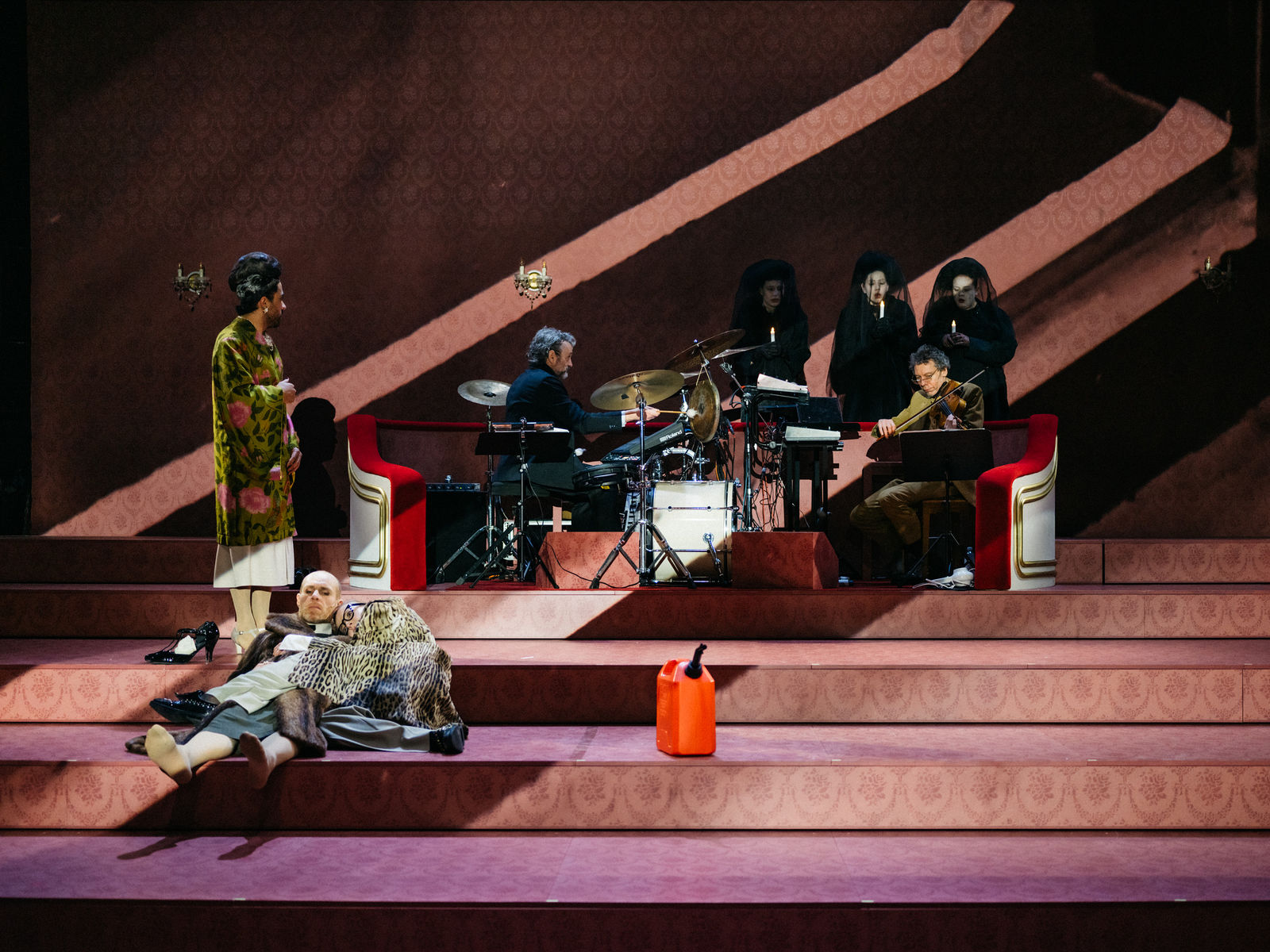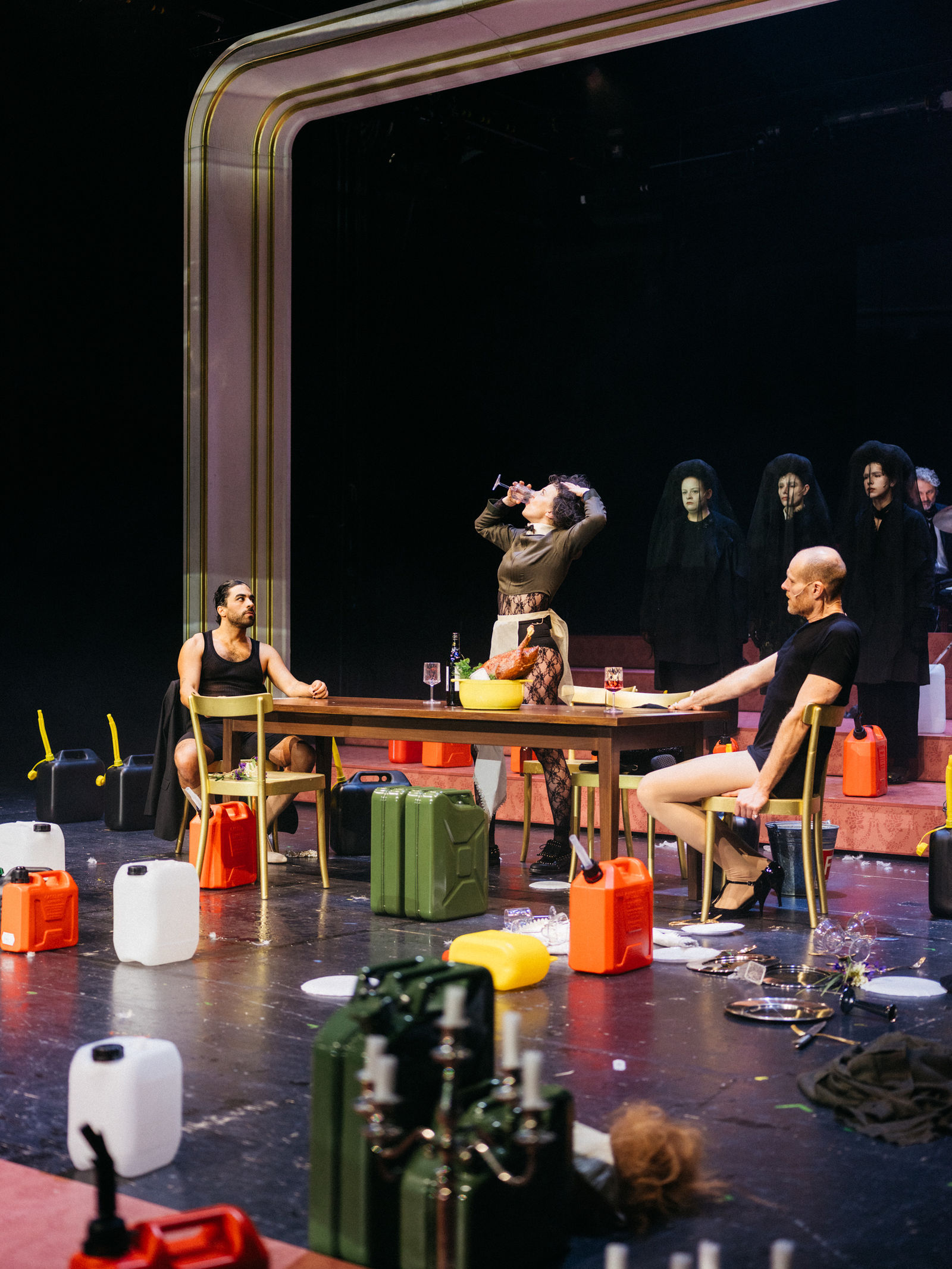By Max Frisch
Staging: Nicolas Stemann
Premiere: 21. March 2024, Pfauen
2h 15min, without break
Just a moment ago, Biedermann [name translates to petty bourgeois] rebelled against all the arsonists, peddlers and good-for-nothings at his local pub, when they already arrive on his doorstep. Despite instructions, his maid Anna is unable to turn the arsonists away. Knechtling [name translates to servant], on the other hand, is turned away: the employee feels cheated out of the patent for his invention, which is the bread and butter of Biedermann's family business. Yet, Biedermann, who actually strives to be honest and open-minded towards phenomena of the zeitgeist, will not listen to him. Meanwhile, the arsonists have taken up residence in his attic. What is going on there? In the end, Biedermann's wife will barely be able to keep her composure, the maid will have collapsed, Knechtling will have killed himself, and Biedermann's house will be in flames – why did it have to come to this, how could it have to come to this?
When Max Frisch's Biedermann und die Brandstifter premiered at the Pfauen in 1958, the positive reactions were based on a misunderstanding: the audience did not understand the play as a farce about bourgeois hypocrisy but quite literally as an appeal not to let strangers into their house. Max Frisch was dismayed. Now co-artistic director Nicolas Stemann is revisiting the Swiss satire as the last production of his tenure at the Schauspielhaus.


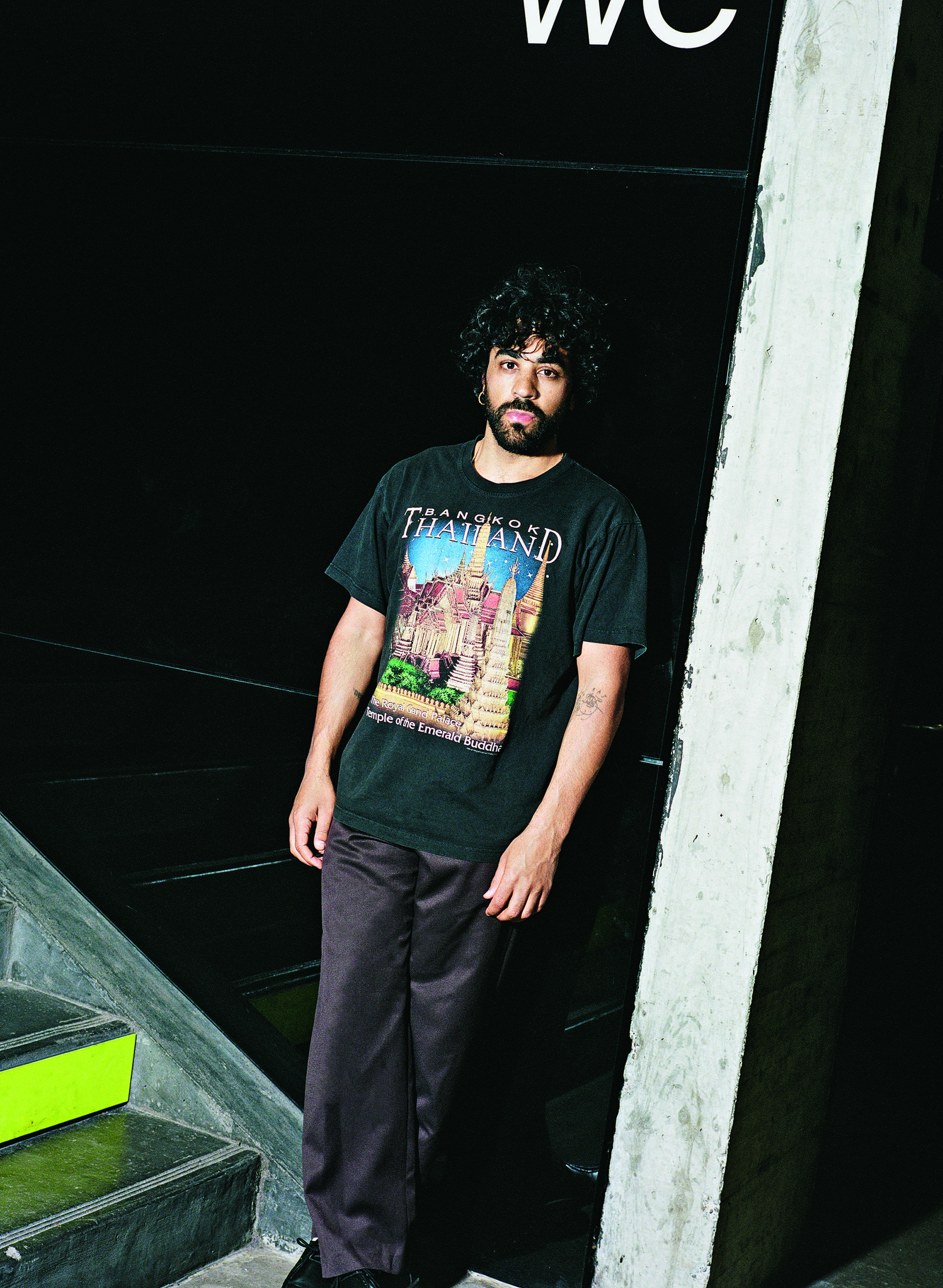






Niels Bormann
Kay Kysela
Sowie:
Daniel Lommatzsch
Sebastian Rudolph
Anina Steiner
Ann-Kathrin Stengel
Juline Andresen
Live Musik:
Thomas Kürstner
Sebastian Vogel
© Leon Schwitter



